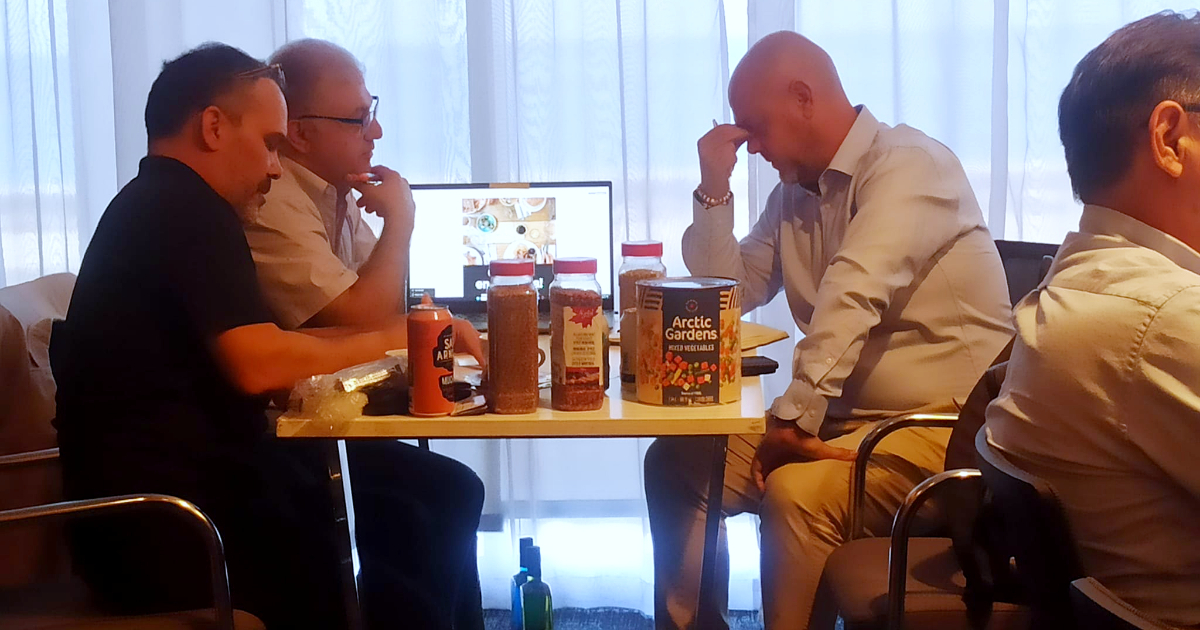Deputy Minister of Finance and Prices in Cuba, Lourdes Rodríguez Ruiz, held a tense meeting with entrepreneurs and SME executives to inform them about the government's decision to cap the prices of essential products sold in the retail network.
A recording accessed by independent media outlet elTOQUE revealed the tense atmosphere of the meeting, with critical interventions from the "new economic actors" and expressions of dissatisfaction with the government's policies to contain inflation.
"If you want essential products to keep coming in, this is not the way," warned an entrepreneur regarding the decision to cap prices on six basic products sold by the private sector. "I am not going to transfer the uncertainty to the foreign supplier," he argued.
The recording, exclusively published by elTOQUE, captured the discontent of the entrepreneurs, the bewilderment of the authorities, and other important information not previously acknowledged by the Cuban government, such as the inflation trend in 2024 remaining similar to that of 2023, despite all the "measures" and "efforts."
"We need to regulate six items, not for a significant reduction in prices, but for price containment in the economy," Rodríguez Ruiz told the attendees. This decision has been anticipated since late last year when the Minister of Finance and Prices, Vladimir Regueiro Ale, announced on the televised program Mesa Redonda a regulation of maximum prices for certain basic products, regardless of who sells them.
According to the deputy minister, the Cuban regime is working on a future centralized pricing system that will start with chicken, oil, powdered milk, pasta, sausages, and powdered detergent. The state's intervention in price formation would be offset for entrepreneurs with import tariff exemptions.
In the over two-hour recording, several of the "new actors" questioned the "methodology" applied by the government, explaining that prices vary daily for several reasons, including the exchange rate at both national and international levels.
Besides price variability and the exchange rate, the entrepreneurs promoted by the regime itself pointed out the impact that the price cap decision could have on imports and relationships with foreign suppliers. They expressed that price capping is not an incentive for bringing in essential products. Additionally, they argued that they could not transfer the uncertainty of prices to their foreign suppliers, making it difficult to secure competitive prices and delivery reliability.
One entrepreneur mentioned that regulating prices without considering daily dynamics and operational costs would lead to losses in imports, resulting in shortages of essential products like milk, oil, and chicken. The proposed prices are not profitable for commercialization, directly affecting the availability of these products in the market, he assured.
The entrepreneurs also questioned why the government intends to cap prices in the private sector while stores in Freely Convertible Currency (MLC) operate with profit margins exceeding 200%. They pointed out that these stores sell the same products as the SMEs at higher prices, creating unfair competition and market distortion.
Another critical point was the cost of transporting goods from the ports to the territories. The entrepreneurs stated that they depend on private transporters due to fuel shortages and operational issues in state transportation, significantly increasing costs and affecting price formation and business profitability.
The lack of clarity and fragmented information on the implementation of price caps has generated uncertainty among entrepreneurs, who decided not to open their businesses until there is clarity on the new regulations. This is due to confusing and contradictory announcements and delays in official communication about the norm.
Lastly, although the deputy minister mentioned that the regulation would be temporary and that the government's policy aims at decentralization, entrepreneurs expressed concerns about the authorities' recurring tendency to centralize prices, generating distrust and confusion among them.
In mid-March, Cuban leader Miguel Díaz-Canel stated that with his economic package to "correct distortions and boost the economy," prices would remain high, but "abusive or speculative prices" would not be allowed.
In a meeting of the Ministry of Finance and Prices (MFP), Díaz-Canel, who is also the first secretary of the Central Committee of the Communist Party of Cuba (PCC), highlighted the need for more effective price checks to combat abuse and speculation.
"Prices will be high because we have structural supply and demand problems today, but what we cannot allow are abusive and speculative prices as they are being set, whether in state or non-state entities," the leader affirmed.
With rampant inflation and no viable plan to balance the country's economy, Díaz-Canel urged MFP officials to find price control formulas. "We really need there to be no abusive and speculative prices because that gives confidence to the population," he noted.
Understanding Cuba's Price Cap Controversy
Here are some frequently asked questions and answers about the recent price cap decisions by the Cuban government and their implications for the economy and entrepreneurs.
Why is the Cuban government capping prices of essential products?
The government claims the price cap is intended to contain inflation and prevent abusive and speculative pricing of essential goods.
What products are affected by the price caps?
The initial items affected by the price caps include chicken, oil, powdered milk, pasta, sausages, and powdered detergent.
How are entrepreneurs reacting to the price caps?
Entrepreneurs have expressed strong discontent, arguing that the price caps will lead to losses, shortages, and difficulties in maintaining relationships with foreign suppliers.
What are the implications of price caps on the Cuban economy?
Price caps could result in shortages of essential goods, increased operational costs for businesses, and overall market distortion due to unfair competition with state-run MLC stores.
